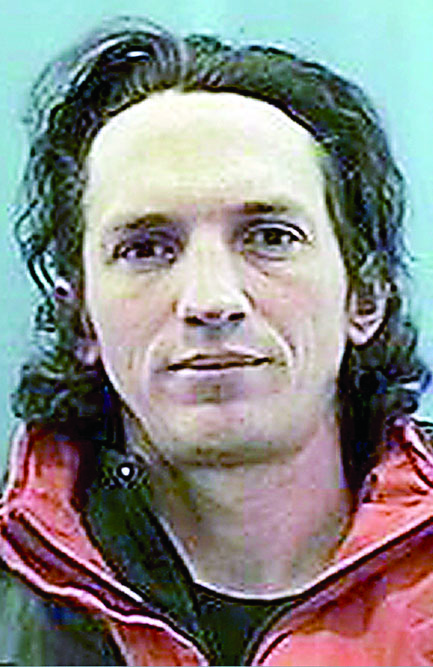PORT ANGELES — The FBI has received about 100 phone calls since issuing an Aug. 3 plea for information about the late serial murderer Israel Keyes, who lived in Neah Bay from 2001 to 2007.
Special Agent Jolene Goeden of Anchorage, who is leading the investigation into the identities of those murdered by Keyes, said this week that none of the calls the FBI has received since mid-August connected Keyes to missing persons in Clallam or Jefferson counties.
But the FBI did receive tips on missing persons elsewhere in the Pacific Northwest.
Agents are investigating those, Goeden said.
“They are cases we’re not able to rule him out of, but we can’t rule him into, either,” Goeden said.
“We did get phone calls at times from people who knew him, who would have been from that area, I’m assuming, from Port Angeles and Neah Bay, just to give information.
“The majority of phone calls were from people who knew him and interacted with him, who would give information about the types of things he did, activity he was involved in, those types of things.”
Keyes has been linked to 11 killings between 2001 and 2012, including five while living in Neah Bay.
In 2012, at age 34, he committed suicide in an Anchorage jail while awaiting trial in the rape and murder of 18-year-old Samantha Koenig, a barista abducted from an Anchorage coffee stand.
He had confessed to FBI agents to killing Koenig and at least seven others in a countrywide crime spree, including two between 2005 and 2006, disposing of at least one of the bodies by dumping it from a boat in Lake Crescent, west of Port Angeles.
Keyes had told investigators in Alaska that he killed four people in Washington, including a couple in the state, between 2001 and 2005.
None of Keyes’ victims appears to have lived in Clallam or Jefferson counties, Clallam County Undersheriff Ron Peregrin and Jefferson County Sheriff’s Detective Brett Anglin said Tuesday.
Anglin said the Jefferson County Sheriff’s Office is investigating a report of a missing person, Delmar Sample, 53, of Onalaska, who was last seen in the Lake Quinault area in March 2005.
“There’s nothing that links him to Israel Keyes at this point,” Anglin said.
Goeden said two agents in the FBI’s Seattle office have been assigned to the case to investigate any leads in Washington state.
“The FBI does not typically release investigative details, like tips or leads,” Ayn Sandalo Dietrich, a spokeswoman for the agency’s Seattle office, said Tuesday in an email.
“The only thing I’d want to reiterate with your readers is that the FBI continues to solicit the public’s help in providing any information that could lead us to other victims of Israel Keyes.”
Anyone with information about Keyes or his possible victims should call 800-225-5324, or 800-CALL-FBI.
In November, three months after the FBI issued its call for information, the agency identified a possible adult victim, Debra Feldman of Hackensack, N.J., whose body was never recovered.
In its Nov. 13 press release on Feldman, the FBI said Keyes’ victims, who were both male and female, ranged from their late teens to the elderly.
Keyes told investigators he murdered his victims in fewer than 10 states but did not disclose all the locations or the victims’ identities.
“Keyes described significant planning and preparation for his murders, reflecting a meticulous and organized approach to his crimes,” the release said.
Keyes also left “murder kits” in various locations around the country that contained, among other items, weapons and cash, Goeden said.
“Unfortunately, Keyes was really good at what he did.
“He was not someone who left a lot of evidence behind.
“We have a subject and we are trying to find the victims, so it is a little nontraditional in terms of how cases are being worked.
“We are trying to find the evidence.”
Makah tribal members told Peninsula Daily News in August that Keyes was a model citizen in Neah Bay, working for the tribe, doing landscaping and putting out plants and flowers in the town.
A hiker, Keyes obtained overnight Olympic National Park backcountry permits.
He was known to look for victims in remote areas, authorities said.
When Keyes left Neah Bay he moved to Alaska, a location from which he traveled extensively.
“It is not unlikely that in some cases, Keyes abducted a victim from one state, transported the victim to another state, where he or she was murdered, and potentially drove the victim to a third state to dispose of the body,” the FBI said in its Nov. 13 statement.
A general contractor, Keyes admitted to burglarizing 20 to 30 homes across the country and discussed, with investigators, committing arson to cover up a homicide.
“He was a very successful contractor,” Goeden said.
“We know he also had done several bank robberies.
“Some of his travel was funded by that as well.”
________
Senior Staff Writer Paul Gottlieb can be reached at 360-452-2345, ext. 5060, or at pgottlieb@peninsuladailynews.com.
